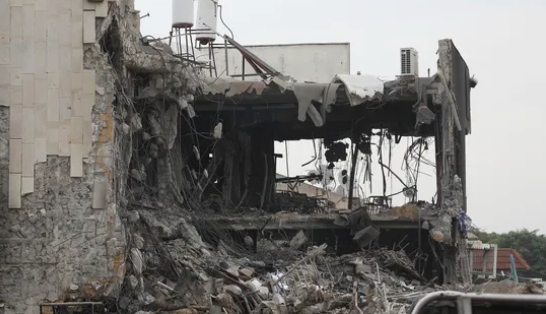For years, Israel’s economy has been referred to as the “Teflon economy” due to its resilience in the face of various challenges. However, the ongoing conflict with Hamas, a Palestinian militant group, is putting this resilience to the test. In recent times, the Israeli economy, known for its ability to withstand crises, is facing new and substantial challenges as a result of the Israel-Hamas conflict.
The Teflon Economy
The term “Teflon economy” has been used to describe Israel’s remarkable economic stability despite living in a region fraught with political tensions and security threats. This economic resilience has been attributed to several factors, including a highly educated and innovative workforce, a robust high-tech sector, and strong global trade relationships. Israel’s economy has been able to adapt and flourish, even during periods of political unrest.
The Impact of the Conflict
The conflict between Israel and Hamas has been a recurring challenge for both sides, causing significant loss of life and widespread destruction. While the primary focus is, and should be, on the human suffering and geopolitical implications, it’s also important to consider how this conflict impacts Israel’s economic stability.
-
Security Costs: Israel has a significant portion of its budget allocated to defense, and the ongoing conflict with Hamas places additional pressure on these resources. The cost of missile defense systems, military operations, and maintaining security in the region can strain the government’s finances.
-
Disruption to Businesses: The conflict disrupts businesses, particularly in the southern region of Israel, which faces a higher risk of rocket attacks. Schools, workplaces, and transportation can be shut down during escalations, leading to economic losses.
-
International Image: The Israeli-Palestinian conflict has repercussions on Israel’s international image, and this can affect its trade and diplomatic relationships. Calls for boycotts, divestment, and sanctions (BDS) campaigns can impact Israeli businesses.
-
Tourism: Israel’s tourism industry, a significant contributor to the economy, often takes a hit during times of conflict. Tourists may cancel trips or avoid planning visits to the region, leading to lost revenue.
-
Human Capital Flight: Ongoing conflict can lead to a “brain drain,” where talented individuals and entrepreneurs may seek more stable environments for their businesses and families.
The Resilience Factors
Despite these challenges, several factors continue to contribute to Israel’s economic resilience:
-
Innovation: Israel’s thriving tech sector remains a driving force in the country’s economy. Start-ups and tech companies continue to attract investment, contributing to economic growth.
-
Global Trade Relationships: Israel has established strong trade relationships with various countries around the world, which can help mitigate the impact of regional conflicts.
-
Diversification: Israel’s economy is diverse, with sectors beyond security and defense. These sectors, such as agriculture, pharmaceuticals, and finance, continue to function even during times of conflict.
-
Government Initiatives: The Israeli government has taken steps to support businesses affected by the conflict, providing financial assistance and economic incentives.
-
Resilient Workforce: The Israeli population is known for its resilience and adaptability. Many Israelis have lived through multiple conflicts and have learned to cope with the challenges they present.
Conclusion
The ongoing conflict with Hamas undoubtedly tests Israel’s “Teflon economy.” While the economic impact of such conflicts is undeniable, Israel’s resilience factors, including its innovation, global trade relationships, and diversified economy, continue to support its ability to withstand these challenges. It is essential to remember that the focus should remain on finding peaceful solutions to the Israel-Hamas conflict, as economic stability alone cannot replace the value of human lives and security. Ultimately, the term “Teflon economy” reflects Israel’s capacity to adapt, but it should not overshadow the human suffering and geopolitical complexities that must be addressed to bring lasting peace to the region.



